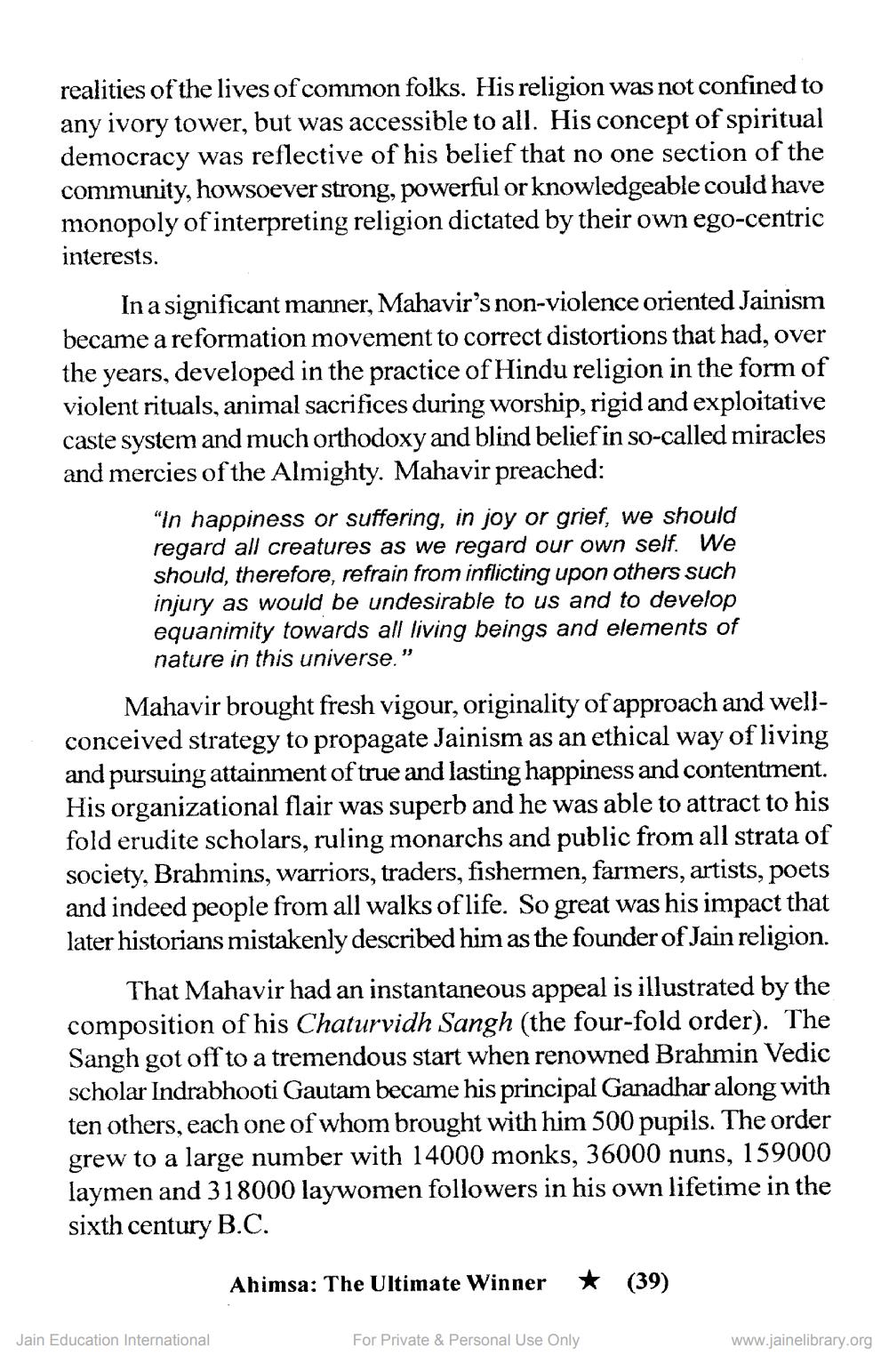________________
realities of the lives of common folks. His religion was not confined to any ivory tower, but was accessible to all. His concept of spiritual democracy was reflective of his belief that no one section of the community, howsoever strong, powerful or knowledgeable could have monopoly of interpreting religion dictated by their own ego-centric interests.
In a significant manner, Mahavir’s non-violence oriented Jainism became a reformation movement to correct distortions that had, over the years, developed in the practice of Hindu religion in the form of violent rituals, animal sacrifices during worship, rigid and exploitative caste system and much orthodoxy and blind belief in so-called miracles and mercies of the Almighty. Mahavir preached:
"In happiness or suffering, in joy or grief, we should regard all creatures as we regard our own self. We should, therefore, refrain from inflicting upon others such injury as would be undesirable to us and to develop equanimity towards all living beings and elements of
nature in this universe."
Mahavir brought fresh vigour, originality of approach and wellconceived strategy to propagate Jainism as an ethical way of living and pursuing attainment of true and lasting happiness and contentment. His organizational flair was superb and he was able to attract to his fold erudite scholars, ruling monarchs and public from all strata of society, Brahmins, warriors, traders, fishermen, farmers, artists, poets and indeed people from all walks of life. So great was his impact that later historians mistakenly described him as the founder of Jain religion.
That Mahavir had an instantaneous appeal is illustrated by the composition of his Chaturvidh Sangh (the four-fold order). The Sangh got off to a tremendous start when renowned Brahmin Vedic scholar Indrabhooti Gautam became his principal Ganadhar along with ten others, each one of whom brought with him 500 pupils. The order grew to a large number with 14000 monks, 36000 nuns, 159000 laymen and 318000 laywomen followers in his own lifetime in the sixth century B.C.
Ahimsa: The Ultimate Winner
*
(39)
Jain Education International
For Private & Personal Use Only
www.jainelibrary.org




